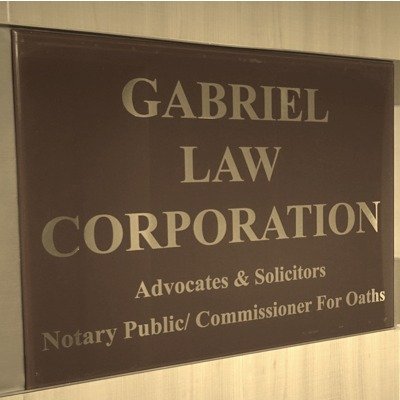Best Public-Private Partnerships (PPP) Lawyers in Raffles Place
Share your needs with us, get contacted by law firms.
Free. Takes 2 min.
List of the best lawyers in Raffles Place, Singapore
About Public-Private Partnerships (PPP) Law in Raffles Place, Singapore
Public-Private Partnerships (PPP) play a key role in the development of Singapore’s infrastructure and services. In Raffles Place, one of Singapore's main business districts, PPP arrangements are commonly used for large-scale projects such as transport infrastructure, real estate development, and public amenities. A PPP is essentially a cooperative arrangement between government agencies and private-sector companies. Both parties share resources, risks, and rewards with the goal of delivering public assets or services more efficiently. The legal landscape surrounding PPPs in Singapore is influenced by a range of statutes, regulations, and guidelines aimed at ensuring transparency, accountability, and value for money.
Why You May Need a Lawyer
Engaging in Public-Private Partnerships involves navigating complex legal, regulatory, and commercial matters. You may need legal assistance in situations such as:
- Drafting and negotiating PPP contracts
- Understanding compliance requirements under Singapore law
- Resolving disputes between public and private entities
- Assessing risks and liabilities in proposed PPP projects
- Interpreting tender or bidding processes for PPP opportunities
- Compliance with environmental, planning, and financial regulations
- Advising on project structuring and financing
- Managing contractual changes or terminations
A lawyer can provide essential guidance to protect your interests and ensure the success of your PPP involvement.
Local Laws Overview
There is no single, comprehensive PPP law in Singapore. Instead, a variety of laws and guidelines apply depending on the nature of the project and the sector involved. Some key legal frameworks and instruments relevant to PPPs in Raffles Place include:
- Infrastructure Protection Act: Governs security-related matters for critical infrastructure.
- Building Control Act: Regulates building and construction standards.
- Government Procurement Regulations: Sets out rules for fair and transparent tendering.
- Public Sector (Governance) Act: Outlines accountability provisions for public bodies.
- Public-Private Partnership Handbook by Ministry of Finance: Provides guidance on structuring and implementing PPPs.
Additionally, contracts are governed by Singapore’s general contract law principles, and dispute resolution often falls under the country’s robust legal and arbitration framework. Parties in a PPP in Raffles Place should also be mindful of sector-specific regulations, such as those applicable to transport or utilities projects.
Frequently Asked Questions
What is a Public-Private Partnership (PPP)?
A PPP is a collaboration between a government agency and a private company to deliver a project or service that benefits the public, with both sides sharing risks and rewards.
Are PPPs in Raffles Place only for large infrastructure projects?
PPPs are commonly used for large projects but can also be adapted for smaller developments or services such as public amenities and facilities management.
How are PPP contracts awarded in Singapore?
Contracts are typically awarded through public tender processes to promote competitiveness, transparency, and value for money.
Can foreign companies participate in PPPs in Raffles Place?
Yes, foreign companies can participate, but they must comply with Singapore’s laws and any sector-specific requirements.
What risks are involved in PPP projects?
Risks may include financing, construction delays, changes in law, performance failure, and demand risk. Agreements usually allocate these risks appropriately between public and private parties.
Who regulates PPPs in Singapore?
Various government agencies oversee different aspects of PPPs. The Ministry of Finance provides general oversight and policy guidance, while sector regulators may set additional requirements.
What legal recourse is available for PPP disputes?
Disputes can be resolved through negotiation, mediation, arbitration, or litigation in the Singapore courts, depending on the contract terms.
Are there incentives for private partners in PPPs?
Incentives may include access to public land or assets, long-term revenue streams, and, in some cases, tax benefits, depending on the project structure.
What should I look for in a PPP contract?
You should review risk allocation, performance requirements, payment mechanisms, dispute resolution clauses, termination rights, and compliance obligations.
Is public consultation required before launching a PPP project?
While not always legally required, public consultation is often undertaken to ensure stakeholder support and transparency, especially for large or sensitive projects.
Additional Resources
For further information or assistance regarding Public-Private Partnerships in Raffles Place, you may consult the following:
- Ministry of Finance Singapore - PPP Guidance and Handbooks
- Singapore Academy of Law - Resources on contract and procurement law
- Singapore Mediation Centre - Alternative dispute resolution options
- Building and Construction Authority (BCA) - Sector-specific requirements
- Local law firms specializing in construction, infrastructure, and commercial law
Next Steps
If you are considering involvement in a PPP project in Raffles Place, Singapore, consider the following actions:
- Conduct an initial assessment of the opportunity and your objectives
- Engage a lawyer experienced in PPPs to advise on rights, risks, and compliance
- Prepare relevant documentation and review all contractual terms carefully
- Seek clarification from relevant government agencies if you are unsure about regulatory requirements
- Establish clear communication channels with all stakeholders involved in the partnership
Legal expertise is crucial throughout all stages of a PPP - from structuring and negotiation to implementation and dispute resolution. Consulting a qualified lawyer will help safeguard your interests and increase the likelihood of a successful partnership.
Lawzana helps you find the best lawyers and law firms in Raffles Place through a curated and pre-screened list of qualified legal professionals. Our platform offers rankings and detailed profiles of attorneys and law firms, allowing you to compare based on practice areas, including Public-Private Partnerships (PPP), experience, and client feedback.
Each profile includes a description of the firm's areas of practice, client reviews, team members and partners, year of establishment, spoken languages, office locations, contact information, social media presence, and any published articles or resources. Most firms on our platform speak English and are experienced in both local and international legal matters.
Get a quote from top-rated law firms in Raffles Place, Singapore — quickly, securely, and without unnecessary hassle.
Disclaimer:
The information provided on this page is for general informational purposes only and does not constitute legal advice. While we strive to ensure the accuracy and relevance of the content, legal information may change over time, and interpretations of the law can vary. You should always consult with a qualified legal professional for advice specific to your situation.
We disclaim all liability for actions taken or not taken based on the content of this page. If you believe any information is incorrect or outdated, please contact us, and we will review and update it where appropriate.










